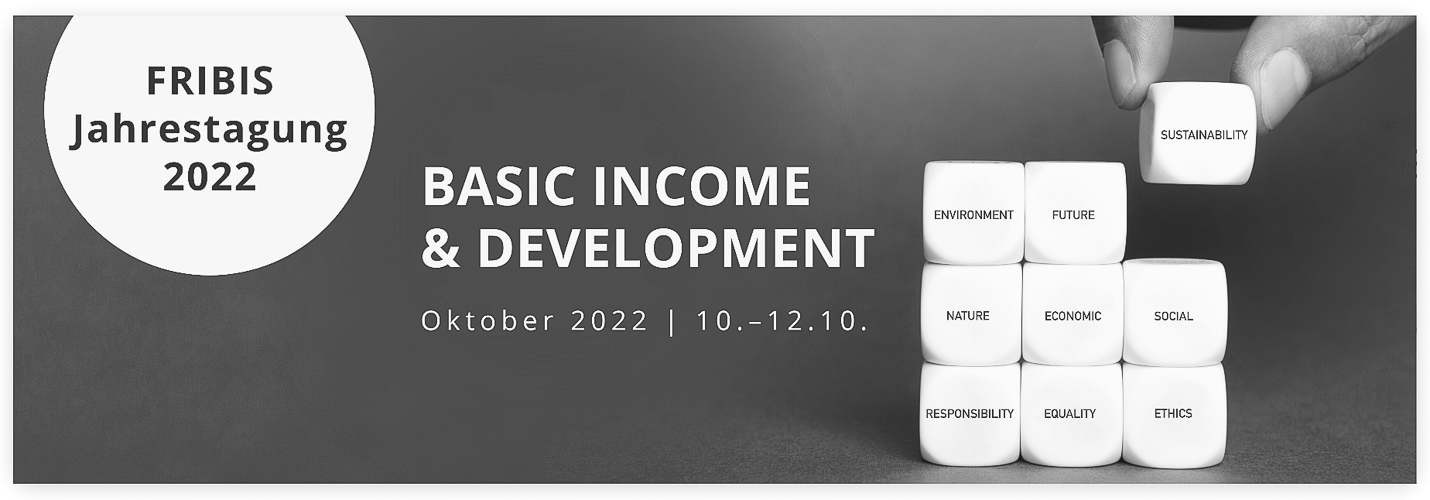Basic income has become the subject of a lively and controversial debate in politics, civil society and academia. By questioning the fundamental assumptions of our social interaction, it challenges us to redefine the way we want to live together. At Basic Income and Development, this year’s FRIBIS’ annual conference, we will be taking a closer look at the relationship between basic income and development ideas and the potential they hold for the challenges of both the present and the future.
For decades globalization and neoliberal economic policies have driven social and ecological crises worldwide. The ongoing climate change has not only lead to environmental disasters, but is also causing social crises. The increasing social and economic inequality is resulting in social polarization and increasing support for populist parties. And, as more and more public goods and services have been privatized in favour of economic growth, the risks in the wake of the various global crises have become collective problems. At the same time standards for the management of natural resources and the natural living environment are lacking, as are norms and values for labour markets, health policy and crisis prevention. We also lack sustainable means and mechanisms to establish social, ecological and economic justice.
Given these challenges, we want to explore the extent to which basic income can help to overcome crises and create new perspectives. Could a basic income help us to use environmental resources more sustainably, preserve biodiverse habitats and make social communities more resilient? Would it help people in (post-)conflict regions to build or secure social peace? Or would it rather have the opposite effect, as some critics suggest? What are the potentials and risks of a basic income for development practices in the Global South, and how does this/do they relate to concepts of redistribution and justice? These and other questions will be addressed at this year’s FRIBIS annual conference.
Visit the conference website here.


